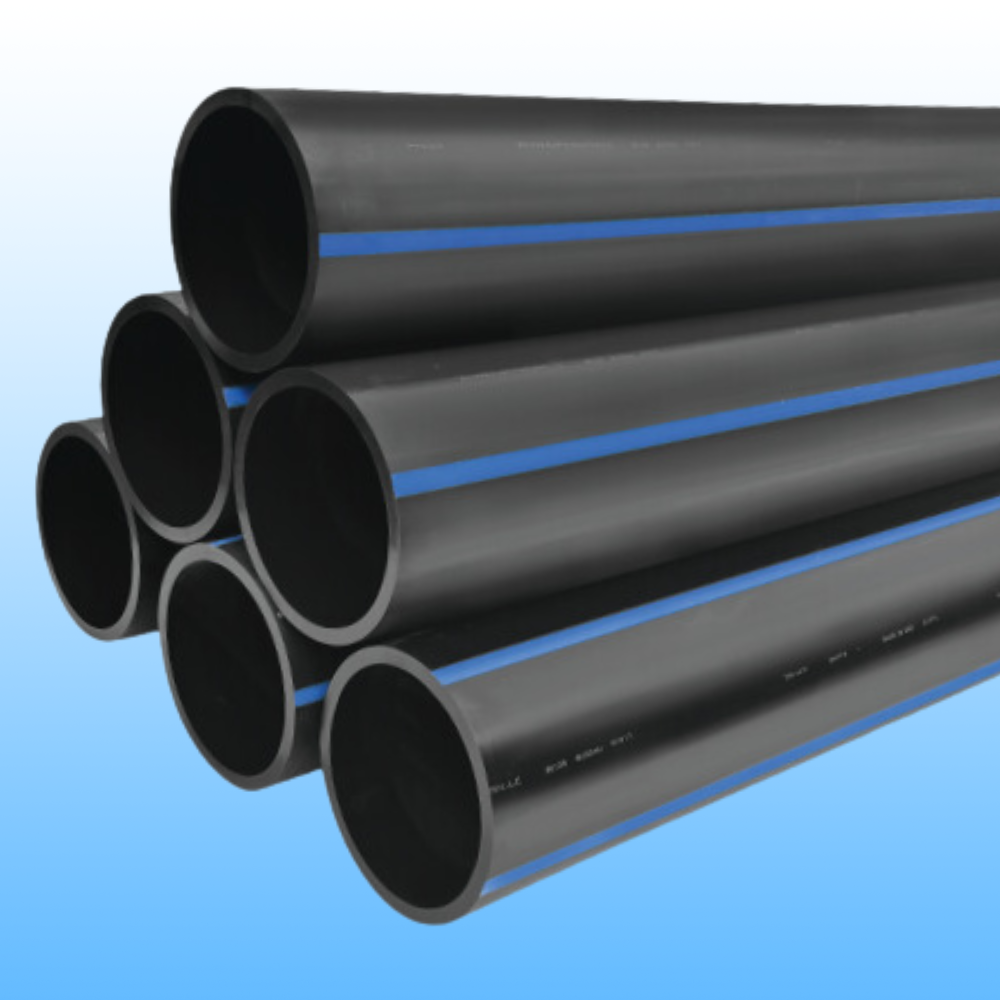Understanding the Trick Perks of HDPE Pipe for Water and Wastewater Monitoring
The usage of HDPE pipe in water and wastewater administration offers numerous benefits that warrant consideration. Its exceptional resilience and lengthy life-span make it a recommended selection for several tasks. Additionally, the material's resistance to corrosion and chemical damages improves its dependability in different environments. Nevertheless, the advantages extend past simply long life and resistance. Discovering its cost-effectiveness and environmental impact discloses a lot more compelling reasons for its prevalent fostering in contemporary infrastructure
Exceptional Resilience and Longevity

HDPE pipeline attracts attention for its outstanding toughness and long life, making it a recommended choice in water management systems. Constructed from high-density polyethylene, these pipes can stand up to substantial pressure and stress and anxiety, making certain trusted efficiency in time. Their robust nature allows them to endure extreme ecological problems, including temperature changes and soil movements, which can trigger various other materials to stop working.
The life-span of HDPE pipelines commonly exceeds half a century, providing an affordable solution for communities and industries alike. In addition, the material's lightweight residential properties simplify installation, lowering labor costs and durations. This resilience minimizes the need for constant fixings or replacements, further boosting its financial charm.
In water monitoring applications, the dependability of HDPE pipes indicates less disturbances and boosted solution continuity, making them essential to sustainable infrastructure advancement. The combination of sturdiness and longevity strengthens HDPE's duty as a keystone in reliable water management remedies.

Resistance to Rust and Chemical Damage
While several products yield to corrosion and chemical damage gradually, HDPE pipelines exhibit exceptional resistance, making them ideal for various water monitoring applications. This durability comes from the molecular framework of high-density polyethylene, which is inherently non-reactive and does not wear away like steels or deteriorate from direct exposure to extreme chemicals. Therefore, HDPE is very reliable in atmospheres with hostile compounds, such as wastewater systems that may have acids, bases, and organic solvents.
In addition, HDPE pipes can hold up against ecological variables such as dirt acidity and saline problems, further boosting their viability for varied applications (Pipe Manufacturing Midland TX). Their capacity to maintain architectural integrity in time decreases the risk of leaks and failures, which is vital in making certain the safety and integrity of water distribution and wastewater administration systems. Subsequently, the resistance to rust and chemical damage markedly adds to the general effectiveness and longevity of HDPE piping options
Cost-Effectiveness and Economic Benefits
When thinking about the monetary ramifications of water administration systems, the cost-effectiveness of HDPE pipes ends up being noticeable. These pipelines use reduced installment and upkeep prices contrasted to standard products like steel or concrete. Their lightweight nature simplifies transport and installment, leading to decreased labor costs. In addition, HDPE pipelines exhibit a long lifespan, typically surpassing 50 years, which equates to fewer substitutes and long-term financial savings.
In addition, the resistance of HDPE to rust and chemical damages reduces the demand for pricey repair work and substitutes. The pipelines also support reliable water flow, minimizing power expenses related to pumping systems. By reducing leaks and water loss, HDPE pipelines add to considerable financial benefits for districts and sectors alike. Generally, the initial financial investment in HDPE piping can generate substantial economic returns over the life-span of the water administration system, making it a sensible choice for lasting infrastructure development.
Environmental Sustainability and Decreased Effect

Versatility and Flexibility in Setup
As a result of their distinct residential properties, HDPE pipelines offer amazing flexibility and flexibility in installment, making them suitable for a vast variety of applications. Their lightweight nature permits for less complicated handling and transport, lowering labor expenses and setup time. HDPE pipes can be curved and formed to fit numerous terrains and job needs, which is particularly advantageous in challenging atmospheres.
Furthermore, their resistance to rust and chemical damages allows for installation in diverse settings without the demand for specialized safety layers. The ability to fuse joints creates a continuous, leak-free system, improving the overall stability and dependability of the setup. HDPE's flexibility additionally suits ground motion, decreasing the threat of damages in locations susceptible to changing soil. Overall, these characteristics make HDPE pipes not only versatile yet additionally a recommended selection for water and wastewater administration systems.
Frequently Asked Inquiries
How Does HDPE Pipe Contrast to PVC in Water Management Applications?
HDPE pipeline provides remarkable versatility, resistance to rust, and longevity compared to PVC. Its lighter weight promotes less complicated installation, while its long lifespan minimizes replacement prices, making HDPE a recommended option in water monitoring applications.
What Is the Lifespan of HDPE Pipes Under Normal Conditions?
Under common conditions, HDPE pipelines can have a life expectancy varying from 50 to 100 years. Their durability and resistance to rust add to their lasting efficiency in different applications, making them a trustworthy option for facilities.
Are HDPE Pipeline Recyclable After Their Life Span?
Yes, HDPE pipelines are recyclable after their life span. Pipe Supplier American Plastics Midland. They can be refined and repurposed right into new items, considerably minimizing ecological influence and promoting sustainability within the sector, making them an environmentally friendly choice for piping options
What Is the Installation Refine for HDPE Pipeline?
The installment procedure for HDPE pipelines entails site prep work, trenching, pipeline blend or mechanical joining, backfilling, and stress testing. Proper methods ensure a long lasting and effective system for delivering water and wastewater successfully.
Can HDPE Piping Be Utilized for Both Safe And Clean and Non-Potable Water Systems?
Yes, HDPE pipelines can be made use of for both potable and non-potable water systems. Their adaptability, resilience, and resistance to deterioration make them suitable for various applications, making certain secure and reliable transport of water in various contexts.